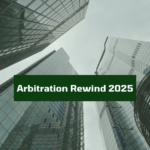Sigh of clarity: No bar on filing 29A Application after the expiry of Arbitrator’s Mandate!

Introduction
One of the key objectives of the Arbitration and Conciliation Act, 1996 (Arbitration Act) is to expedite the process of resolution of disputes while providing autonomy to parties. With a view to give effect to the objectives of the Arbitration Act, Section 29-A was inserted by way of an amendment in 2015 (Amendment). Prior to the Amendment, there was no time limit prescribed under the Arbitration Act for passing of an arbitral award. With the said Amendment, Section 29-A provides that an arbitral award in a domestic arbitration must be made within 12 (twelve) months from the date of completion of pleadings. In the event the parties mutually agree, a grace extension of 6 (six) months may be agreed in addition to 12 (twelve) months prescribed under the Arbitration Act. However, if an arbitral award is not made within 18 (eighteen) months (i.e., 12 + 6), the mandate of the arbitrator shall be terminated unless the court grants a further extension.
As clarified by the Supreme Court in Chief Engineering (NH) PWD (Roads) v. M/s. BSC & C and C JV, the principal Civil Court of original jurisdiction is empowered to decide a petition under Section 29-A of the Arbitration Act. Moreover, the Civil Court must grant extension only for (i) sufficient cause and (ii) such terms and conditions as it may impose. However, the question arises whether such an extension may be granted even after the mandate of an arbitral tribunal has already expired.
In the past, the High Courts have expressed different views on the said issue. The Bombay High Court in Nikhil H. Malkan and Ors. v. Standard Chartered Investment and Loans (India) and the Delhi High Court in ATC Telecom Infrastructure Private Limited v. Bharat Sanchar Nigam Limited held that an arbitral tribunal’s mandate can be extended even after the expiry of the period prescribed under the Arbitration Act. However, the Calcutta High Court in Rohan Builders (India) Pvt. Ltd. v. Berger Paints India Limited (Rohan Builders Case) opined that the application to seek extension of mandate of an arbitral tribunal must be filed before the expiry of the prescribed period. The different views gave rise to confusion and the decision in Rohan Builders Case came to be challenged before the Supreme Court. In this article, we discuss the decision of the Supreme Court and its consequences.
Calcutta High Court’s decision in Rohan Builders Case
The Calcutta High Court in Rohan Builders Case referred to the 176th Report of the Law Commission of India on the Arbitration and Conciliation (Amendment) Bill, 2001 (176th Report) to ascertain the intent of insertion of Section 29-A to the Arbitration Act. The Court observed that the Amendment provides for words “If the award is not made within…the mandate of the arbitrator(s) shall terminate unless…” while the proposal under the 176th Report “If the award is not made within… the arbitral proceedings shall, subject to provisions of sub-sections (4) to (6) stand suspended until…” Accordingly, by inserting the word “terminate” to the Amendment, the legislature intended to strictly terminate the proceedings until an extension has already been granted. Moreover, the Court opined that allowing extension of mandate post the expiry of the stipulated time will encourage rogue litigants to deliberately delay the arbitration. Aggrieved by this, Rohan Builders (India) Pvt. Ltd. filed a special leave petition before the Supreme Court seeking an appeal against the decision of the Calcutta High Court.
Meanwhile, on 06 November 2023, the Supreme Court directed that the operation of the judgment passed by the Calcutta High Court in Rohan Builders Case be stayed till finally decided.
Supreme Court’s decision in Rohan Builders Case
The Supreme Court disagreed with the view taken by Calcutta High Court and clarified that an application seeking extension of mandate of an arbitral tribunal under Section 29-A of the Arbitration Act can be filed even after the expiry of the period prescribed under the Arbitration Act. The Supreme Court opined that the reasoning adopted by the Calcutta High Court is wrong in as much as the word “terminate” has to be read in context of the entire provision and not in isolation. Accordingly, the qualification of the word “terminate” in the provision with “unless the court has, either prior to or after the expiry of the period so specified, extended that period” is of relevance. The Court opined that the same does not reflect termination as if proceedings have come to a legal / final end. The termination is not absolute.
Further, the Court looked into the legislative intent of the Amendment and held that it envisions arbitration as litigant-centric process by expediting disposal of cases. Accordingly, a narrow, restrictive interpretation that runs contrary to expeditious disposal of cases is counterproductive.
Lastly, the Court clarified that the mandate of an arbitral tribunal continues where an application seeking extension for passing an arbitral award is still pending.
Our Thoughts
The decision of the Supreme Court in Rohan Builders Case brings much-needed clarity on the timelines for seeking extension of time to pass an arbitral award. It has been recognized that the extension can be applied for even after the time period prescribed under the provision has expired and the mandate has already been terminated. It essentially allows the continuation of proceedings if both the parties have agreed to seek extension from the court or if an application has already been filed under Section 29-A of the Arbitration Act.
The decision reaffirms party-autonomy along with checks and balances to meet the objective of the Amendment i.e., expeditious disposal of cases. The Supreme Court has clarified that while an application may be filed after the expiry of the prescribed time period, it will be granted at the discretion of the court once it is satisfied that sufficient cause has been shown. In fact, if the court is of the view that the delay is attributable to the arbitral tribunal, it may even substitute one or more of the arbitrators. The approach laid down by the Court reduces the chances of notorious parties adopting dilatory tactics to pause the arbitration.
The information contained in this document is not legal advice or legal opinion. The contents recorded in the said document are for informational purposes only and should not be used for commercial purposes. Acuity Law LLP disclaims all liability to any person for any loss or damage caused by errors or omissions, whether arising from negligence, accident, or any other cause.



